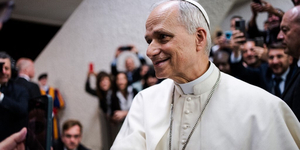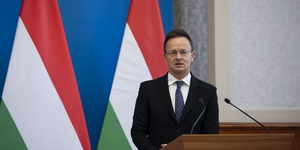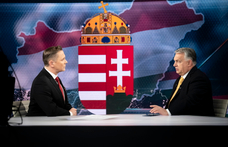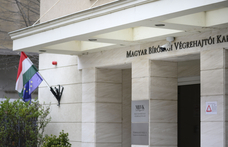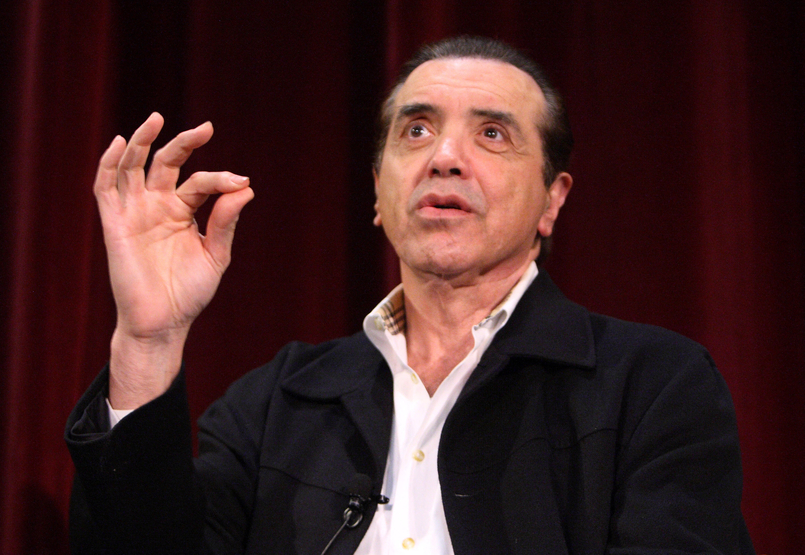A few days before last year's parliamentary elections a surprising statement appeared on Fidesz's front page. In his statement, Fidesz deputy-chairman Zoltan Pokorni called in the party's name for schools to introduce a day commemorating Trianon. The next day, the party's press officer claimed the seemingly official statement was fraudulent. Judit Hammerstein, the party's press head went as far as to report the matter to the police. Nothing is known of the result of the investigation, nor of how a fake text managed to get onto the party's homepage.
Yet this supposed fraudulent press release found a new lease of life this weekend. Zsolt Nemeth, the chairman of the parliamentary committees on foreign affairs and Hungarians abroad told a gathering at Tapolca that his party and the Christian Democrats would move a motion to declare 4 June, the day on which the Trianon treaty was signed, a day of Hungarian solidarity. The motion has already been moved, and no correction has been made - perhaps this proposal should be taken seriously.
The (fake) idea is still just as bad as it was last year, of course. But at least it gives its supporters the opportunity to hound their opponents out of the nation. Of course, we should first take a look at the form of words employed. Fidesz has proven, for example, that it is capable of reforming itself. On 4 June 1990, Gyorgy Szabad, the MDF president of Parliament, asked MPs to stand for a minute's silence to remember the "tragic peace of Trianon." Fidesz walked out of the chamber. Remember also the time when Laszlo Kover and Zsolt Nemeth himself both firmly dismissed the idea of holding a referendum on dual citizenship, only for the party's leadership to stand alongside Viktor Orban, the party's leader, as the referendum date approached, deciding to support the idea.
The government parties can hardly support Fidesz's proposal, since this would put unnecessary strain on Hungary's relations with its neighbours and would put a brake on Hungarian communities' attempts at gaining greater autonomy. The motion's chances of success are not improved by the fact that its preamble mentions the 2004 referendum, since the same coalition parties then said a determined no to dual citizenship for ethnic Hungarians beyond the borders, earning them the tag of "traitor" from the opposition.
Nemeth is experienced in foreign affairs, so he can hardly expect to persuade the Slovaks, Romanians, Ukrainians and Serbs that - as he said in Tapolca - "nobody benefited from Trianon, not even the apparent victors." And he must surely know that schoolchildren have no shortage of ways of finding out about the consequences of Trianon and the ethnic Hungarian communities of neighbouring countries without introducing a new, emotionally overcharged national day. If the aim were to teach history of course, and not to promote nationalist propaganda.
Why the sudden need for a day of remembrance? Just as every inter-war party in Hungary demanded the revision of the Trianon borders, today there is no serious political force in Hungary that does not support the Hungarian minorities' strivings for autonomy. Nemeth does not say that Hungary's borders, last shifted in 1947, should be moved again. He also talks about autonomy, about the "damaging consequences" of Trianon, of reaching understandings with neighbouring states. But it's not clear how any of this would be helped by a Day of National Solidarity.
It was always an illusion to expect EU membership to cure all the ills that affect the small states of this region. Minorities are still denied their rights and we are not yet all brothers. It is clear that the EU's core members are perplexed by the 'individual' solutions advanced by the eastern members as they look at Romanian, Bulgarian or Polish domestic politics. The last thing they want to see is solo initiatives straining relations between the various new member states. Let us not forget the tensions caused by the Status Law back in the day, which created the Hungarian national identity document - even if the EU was never on our side on that one.
This initiative is built on the idea that Hungary is wounded. The proposal has been made for self-interested reasons, without any regard for the consequences, nor for the principal that minority communities in Europe have rights based not on historic injustices but on collective human rights. If Nemeth had been serious, of course, he would have discussed the proposal with the government parties and the ethnic Hungarian organisations in neighbouring countries, not to mention sister parties in other countries. It is clear that Fidesz today holds different views on Trianon from 17 years ago. Fidesz's MPs left the chamber in 1990 because there had been no discussion of the proposal before it was made. In 2007, a proposal like this should not have been made in Tapolca. The idea should have been discussed thoroughly. And then forgotten.
Zsolt Zádori



